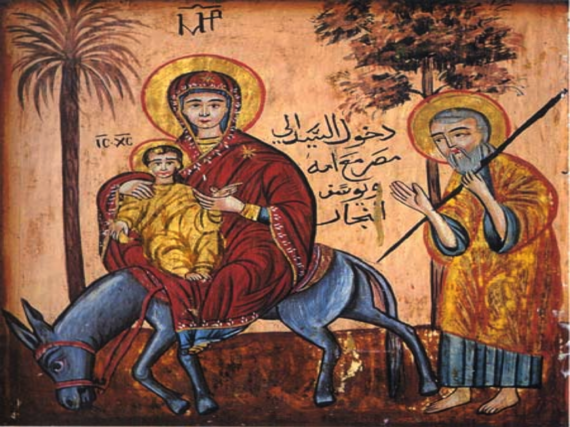The gospel according to Matthew tells a story about Jesus as a refugee child. Joseph, Mary and Jesus had to flee to Egypt seeking safety and security. Jesus's life was at risk; his survival was jeopardized because of a brutal massacre of infants. Monopolized by fear for his throne, king Herod of Judea, sent and killed all the children who were two years old in Bethlehem, where the Messiah child was supposedly to be born. Jesus survived the massacre because an angel instructed Joseph to flee to Egypt. The fact that Jesus survived this massacre should not make us forget about the other infants that were killed in this ruthless crime. Nor should we pass over the parents who lost their little one. The author of Matthew reminds us that these parents are like Rachel, who wept her children and 'refused to be consoled, because they are no more.' With Rachel, who died giving birth, and with many parents in our world, we mourn the loss of many boys and girls because of civil wars and militant oppression in many places in the world like Syria and Palestine. We hold onto the survival of Jesus as a sign of hope in the midst a bleak and a despairing present.
This story exposes the political agenda that is willing to do anything to maintain authority and power, even if this means killing helpless infants. Herod, king of Judea, is analogous to Pharaoh of Egypt in the Exodus story. In Matthew 2:3 "King Herod ... was frightened," and in Exodus 1:9-10 the new Pharaoh who did not know Joseph said: "Look, the Israelite people are more numerous and more powerful than we. Come let us deal shrewdly with them, or they will increase and in the event of war, join our enemies and fight against us and escape from the land." Both of these rulers were driven by fear and their fear manipulated them to the point of committing a massacre.
The survival of Moses and Jesus calls us to resist politics of oppression and violence that emerge out of fear. One of way of resisting politics of fear can happen if we challenge ourselves to become a place of refuge for those who are escaping oppression and violence. The popular image of Egypt in the Hebrew Bible is that of a place of oppression and slavery. The stories of Abraham (Genesis 12), Joseph (Genesis 37-50), Jeroboam (1 Kings 11), Jeremiah (42-44), and the flight of Jesus (Matthew 2) portray Egypt as a place of refuge at times of famine, political strife, and violence. Egypt was a safe place for these ancestors and for Jesus. The shift in the portrayal of Egypt not only does it question our essentialization of a place like Egypt as that of oppression, but it also invites us to question our politics that are similar to the politics of Herod and Pharaoh. The story of Jesus as a refugee child in Egypt invites us to be liberated from our fears and to open up our borders to those who seek safety and security.

